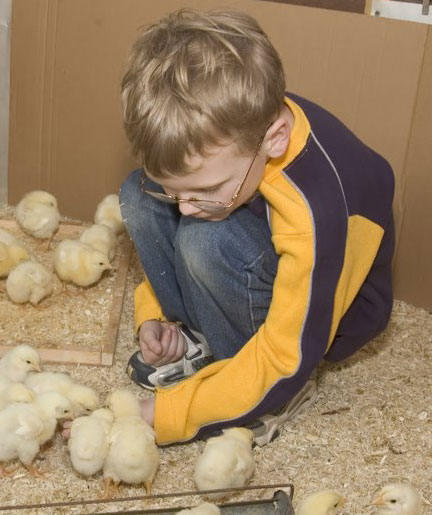
So, you finally did it. You went out and got chicks®. Now what? Here are eight facts about baby chicks that commonly surprise first time owners.
Brooding baby poultry of any type generates a lot of fine dust, so locate your brooder where dust won’t be a problem. Your living room or guest room, for example, is not ideal because the dust will settle on drapes, furniture and carpets. Much more suitable is a room with easy-to-clean hard surfaces, such as a laundry room or spare bathroom. Even better is an enclosed garage or tool shed, provided it is predator proof and not drafty.
A big question asked by first-time chick owners is: What do baby chicks eat?They eat starter ration, which contains a mixture of grains, protein, vitamins and minerals formulated to satisfy a baby chick’s nutritional needs. Never feed baby chicks rations intended for mature laying hens. The higher calcium content can permanently damage young kidneys.
How much heat chicks need, and for how long, are not questions with easy answers. So many variables are involved: the species raised, the breed, their numbers, their rate of growth, the size of the brooder, the room temperature in which the brooder is located and the method of providing heat. The best way to know if chicks are comfortable is to let them tell you: If they are crowded near the heat source, they’re cold. If they get as far as they can from the heat source, they’re too hot. If they are randomly distributed in the brooder, they’re quite comfortable, thank you.
Handling baby chicks helps keep them friendly as they grow, but too much handling can be as exhausting for a baby chick as it is for a baby human. Noise is another stressor, especially sudden and loud noises, so try to maintain a calm and quiet brooding environment. Light can be yet another stressor. Chicks do need light to find feed and water. But after the first 48 hours, giving them time to get oriented to the heat source and the placement of feeders and drinkers, adjust the light to provide a daily period of darkness. An infrared heater is ideal for brooding baby chicks, because it furnishes heat separately from lights, which can then be turned off periodically.
Lots of people brood chicks in a kiddie wading pool, only to find that as soon as the chicks start developing little wing feathers they want to perch on the pool’s edge. Next thing you know, the chicks jump down on the outside and start wandering around, lost. A brooder should either have a wire cover over the top to prevent escapes, or it should be surrounded by a brooder guard high enough to prevent chicks from perching on top or flying over.
You put a few chicks in a brooder and seemingly overnight the brooder is wall-to-wall chicks. Be prepared to increase the available space as your chicks grow. Base the size of their space on common sense and observation. Chicks are overdue for expanded living quarters if: They have little room to move and exercise or to spread out for sleep. They dirty the brooder floor faster than you can keep it reasonably clean — droppings pack on the floor, manure balls stick to feet, or you can smell ammonia. They run out of feed or water between feedings, indicating the need for a larger area to accommodate more or larger feeders and drinkers.
Even if you intended to get only pullets (baby hens), some of them may turn out to be roosters. The best chick sexing methods are only about 90% accurate. For some breeds, any roosters present may not reveal themselves until they are 4 to 6 months old. Make a plan in advance for what to do with unwanted roosters.
Another thing to be prepared for is how much of your time you will spend with your baby chicks. And no, they do not need a lot of attention. It’s just that hanging out with chicks and watching them grow is much of the fun of having chicks in the first place. Enjoy your chicks while you can. Before you know it, they’ll be full grown chickens — and just as addictive as ever.
And that’s today’s news from the Cackle Coop.
Gail Damerow, author, Hatching and Brooding Your Own Chicks — Chickens, Turkeys, Ducks, Geese, Guinea Fowl

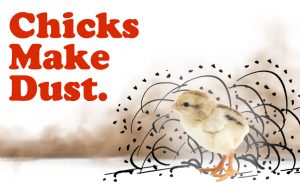
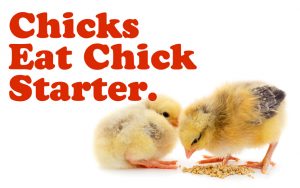
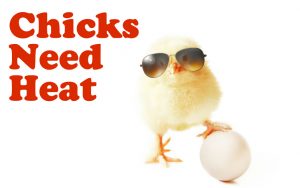
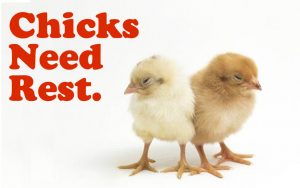
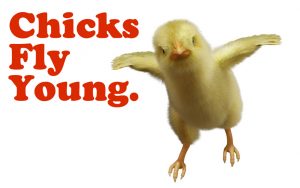
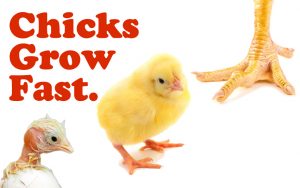

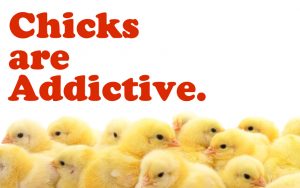
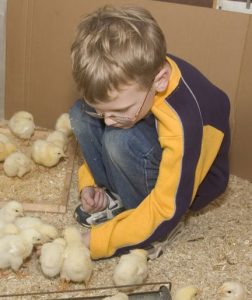

I’m a 4-H poultry project leader and would love it if you could fix these article so I can print them off for the kids.